Грег Иган - Distress
Здесь есть возможность читать онлайн «Грег Иган - Distress» весь текст электронной книги совершенно бесплатно (целиком полную версию без сокращений). В некоторых случаях можно слушать аудио, скачать через торрент в формате fb2 и присутствует краткое содержание. Жанр: Фантастика и фэнтези, на английском языке. Описание произведения, (предисловие) а так же отзывы посетителей доступны на портале библиотеки ЛибКат.
- Название:Distress
- Автор:
- Жанр:
- Год:неизвестен
- ISBN:нет данных
- Рейтинг книги:3 / 5. Голосов: 1
-
Избранное:Добавить в избранное
- Отзывы:
-
Ваша оценка:
- 60
- 1
- 2
- 3
- 4
- 5
Distress: краткое содержание, описание и аннотация
Предлагаем к чтению аннотацию, описание, краткое содержание или предисловие (зависит от того, что написал сам автор книги «Distress»). Если вы не нашли необходимую информацию о книге — напишите в комментариях, мы постараемся отыскать её.
Distress — читать онлайн бесплатно полную книгу (весь текст) целиком
Ниже представлен текст книги, разбитый по страницам. Система сохранения места последней прочитанной страницы, позволяет с удобством читать онлайн бесплатно книгу «Distress», без необходимости каждый раз заново искать на чём Вы остановились. Поставьте закладку, и сможете в любой момент перейти на страницу, на которой закончили чтение.
Интервал:
Закладка:
When we undressed and fell onto the bed together, and my vision lurched, I thought it was just a side-effect of passion. When my arms went numb, though, I realized what was happening.
I’d pushed myself too far with the melatonin blockers, depleting neurotransmitter reserves in the region of the hypothalamus where alertness was controlled. I’d borrowed too much time, and the plateau was crumbling.
Stricken, "I said, I don’t believe this. I’m sorry."
"About what?" I still had an erection.
I forced myself to concentrate; I reached over and hit a button on the pharm. "Give me half an hour."
"No. Safety limits—"
"Fifteen minutes," I pleaded. "This is an emergency."
The pharm hesitated, consulting the security system. "There is no emergency. You’re safe in bed, and the house is under no threat."
"You’re gone. You’re recycled."
Gina seemed more amused than disappointed. "See what happens when you transgress natural limits? I hope you’re recording this for Junk DNA ." Mockery only made her a thousand times more desirable—but I was already lapsing into microsleeps. I said dolefully, "Forgive me? Maybe… tomorrow, we could—"
"I don’t think so. Tomorrow you’ll be working till one a.m. And I’m not waiting up." She took me by the shoulders and rolled me onto my back, then knelt astride my stomach.
I made sounds of protest. She bent over and kissed me on the mouth, tenderly. "Come on. You don’t really want to waste this rare opportunity, do you?" She reached down and stroked my cock; I could feel it respond to her touch, but it barely seemed to be a part of me anymore.
I murmured, "Ravisher. Necrophiliac." I wanted to make a long earnest speech about sex and communication, but Gina seemed intent on disproving my whole thesis before I could even begin. "Talk about Bad Timing. "
She said, "Is that a yes or a no?"
I gave up trying to open my eyes. "Go ahead."
Something vaguely pleasant began to happen, but my senses were retreating, my body was spinning off into the void.
I heard a voice, light-years away, whisper something about "sweet dreams."
But I plunged into blackness, feeling nothing. And I dreamed of silent oceanic depths.
Of falling through dark water. Alone.
6
I’d heard that London had suffered badly from the coming of the networks, but was less of a ghost town than Sydney. The Ruins were more extensive, but they were being exploited far more diligently; even the last glass-and-aluminium towers built for bankers and stockbrokers at the turn of the millennium, and the last of the "high tech" printing presses which had "revolutionized" newspaper publishing (before becoming completely obsolete), had been labeled "historic" and taken under the wing of the tourism industry.
I hadn’t had time, though, to visit the hushed tombs of Bishopsgate or Wapping. I’d flown straight to Manchester—which appeared to be thriving. According to Sisyphus’spotted history, the balance between real-estate prices and infrastructure costs had favored the city in the twenties, and thousands of information-based companies—with a largely telecommuting workforce, but the need for a small central office as well—had moved there from the south. This industrial revival had also shored up the academic sector, and Manchester University was widely acknowledged to be leading the world in at least a dozen fields, including neurolinguistics, neo-protein chemistry, and advanced medical imaging.
I replayed the footage I’d taken of the city center—swarming with pedestrians, bicycles and quadcycles—and picked out a few brief establishing shots. I’d hired a bicycle, myself, from one of the automated depots outside Victoria Station; ten euros and it was mine for the day. It was a recent model Whirlwind, a beautiful machine: light, elegant, and nearly indestructible—made in nearby Sheffield. It could simulate a pushbike if required (a trivial option to include, and it kept the masochistic purists happy), but there was no mechanical connection between pedals and wheels; essentially, it was a human-powered electric motorbike. Superconducting current loops buried in the chassis acted as a short-term energy store, smoothing out demands on the rider, and taking full advantage of the energy-reclaiming brakes. Forty k.p.h. took no more effort than a brisk walk, and hills were almost irrelevant, ascent and descent nearly canceling each other out in energy lost and gained. It must have been worth about two thousand euros—but the navigation system, the beacons and locks, were so close to tamper-proof that I would have needed a small factory, and a PhD in cryptology, to steal it.
The city’s trams went almost everywhere, but so did the covered cycleways, so I’d ridden the Whirlwind to my afternoon appointment.
James Rourke was Media Liaison Officer for the Voluntary Autists Association. A thin, angular man in his early thirties, in the flesh he’d struck me as painfully awkward, with poor eye contact and muted body language. Verbally articulate, but far from telegenic.
Watching him on the console screen, though, I realized how wrong I’d been. Ned Landers had put on a dazzling performance, so slick and seamless that it left no room for any question of what was going on beneath. Rourke put on no performance at all—and the effect was both riveting and deeply unsettling. Coming straight after Delphic Biosystems' elegant, assured spokespeople (teeth and skin by Masarini of Florence, sincerity by Operant Conditioning pie), it would be like being jolted out of a daydream by a kick in the head.
I’d have to tone him down, somehow.
I had a fully autistic cousin myself—Nathan. I’d met him only once, when we were both children. He was one of the lucky few who’d suffered no other congenital brain damage, and at the time he was still living with his parents in Adelaide. He’d shown me his computer, cataloguing its features exhaustively, sounding scarcely different from any other enthusiastic thirteen-year-old technophile with a new toy. But when he’d started demonstrating his favorite programs—stultifying solo card games, and bizarre memory quizzes and geometric puzzles that had looked more like arduous intelligence tests than anything I could think of as recreation—my sarcastic comments had gone right over his head. I’d stood there insulting him, ever more viciously, and he’d just gazed at the screen, and smiled. Not tolerant. Oblivious.
I’d spent three hours interviewing Rourke in his small flat; VA had no central office, in Manchester or anywhere else. There were members in forty-seven countries—almost a thousand people, worldwide—but only Rourke had been willing to speak to me, and only because it was his job.
He was not fully autistic, of course. But he’d shown me his brain scans.
I replayed the raw footage.
"Do you see this small lesion in the left frontal lobe?" There was a tiny dark space, a minuscule gap in the gray matter, above the pointer’s arrow. "Now compare it with the same region in a twenty-nine-year-old fully autistic male." Another dark space, three or four times larger. "And here’s a non-autistic subject of the same age and sex." No lesion at all. "The pathology isn’t always so obvious—the structure can be malformed, rather than visibly absent—but these examples make it clear that there’s a precise physical basis to our claims."
The view tilted up from the notepad to his face. Witnessmanufactured a smooth transition from one rock-steady "camera angle" to another—just as it smoothed away saccades: the rapid darting movements of the eyeballs, restlessly scanning and re-scanning the scene even when the gaze was subjectively fixed.
I said, "No one would deny that you’ve suffered damage in the same part of the brain. But why not be thankful that it’s minor damage, and leave it at that? Why not count yourself lucky that you can still function in society, and get on with your life?"
Читать дальшеИнтервал:
Закладка:
Похожие книги на «Distress»
Представляем Вашему вниманию похожие книги на «Distress» списком для выбора. Мы отобрали схожую по названию и смыслу литературу в надежде предоставить читателям больше вариантов отыскать новые, интересные, ещё непрочитанные произведения.
Обсуждение, отзывы о книге «Distress» и просто собственные мнения читателей. Оставьте ваши комментарии, напишите, что Вы думаете о произведении, его смысле или главных героях. Укажите что конкретно понравилось, а что нет, и почему Вы так считаете.
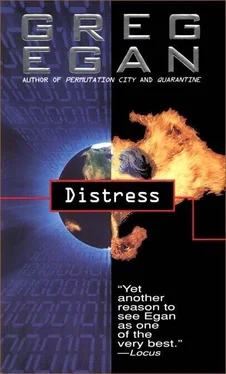

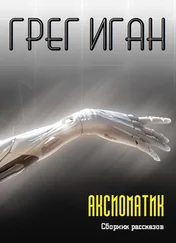


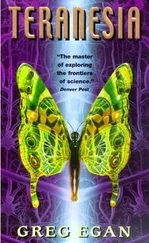
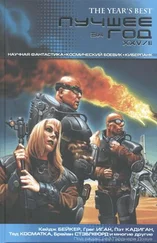

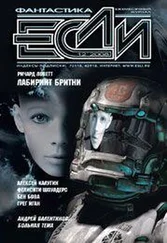
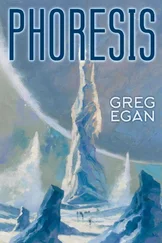
![Грег Иган - Рассказы [компиляция]](/books/419837/greg-igan-rasskazy-kompilyaciya-thumb.webp)
